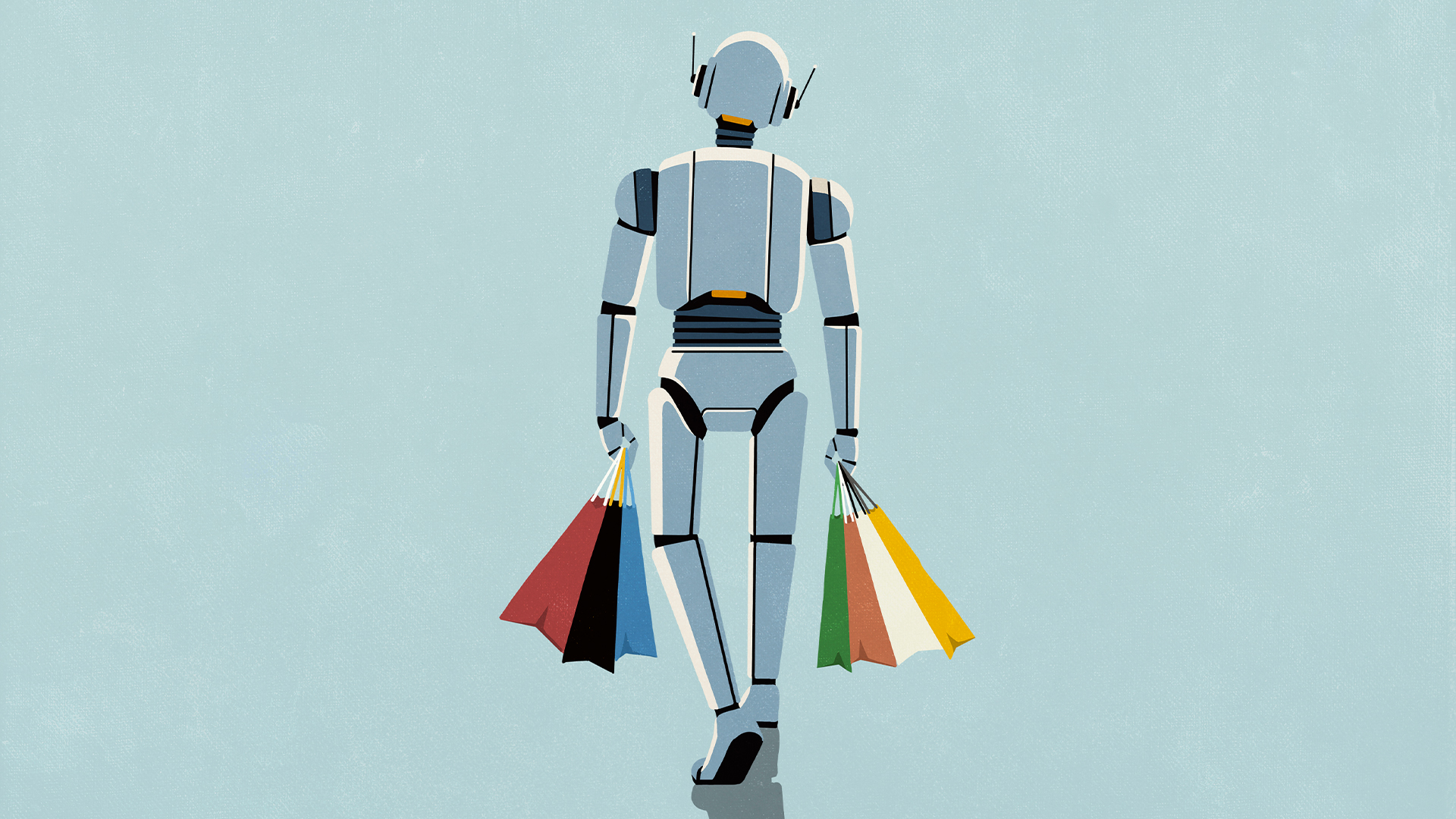IT leaders don’t trust AI agents yet – and they’re missing out on huge financial gains
While AI agents offer big financial incentives, most enterprises want to maintain strict human supervision


Sign up today and you will receive a free copy of our Future Focus 2025 report - the leading guidance on AI, cybersecurity and other IT challenges as per 700+ senior executives
You are now subscribed
Your newsletter sign-up was successful
Despite the hype around agentic AI, only 2% of organizations have fully scaled deployment – and trust is a big stumbling block for many.
According to a new report from Capgemini, agentic AI is set to deliver up to $450 billion in economic value over the next three years through revenue gains and cost savings.
Scaled adoption shows even greater potential, with organizations that have achieved it projected to generate around $382 million on average over the next three years, with others netting around $76 million.
There's no lack of executive ambition, the consultancy noted, with 93% of business leaders believing that scaling AI agents over the next 12 months will provide a huge competitive edge.
However, most organizations are still in the early stages of implementing agentic AI, with fewer than a quarter having launched pilots and only 14% having begun implementation.
The majority are in planning mode, the study noted, while nearly half still lack a clear cut implementation strategy.
Franck Greverie, chief portfolio & technology officer at Capgemini, said the report shows that while agentic AI shows promise, successful adoption remains a multi-faceted challenge.
Sign up today and you will receive a free copy of our Future Focus 2025 report - the leading guidance on AI, cybersecurity and other IT challenges as per 700+ senior executives
“The economic potential of AI agents is significant, but realizing this value depends on more than just the technology, it requires a comprehensive and strategic transformation across people, processes and systems,” Greverie said.
Trust in AI agents grows with maturity of projects
Most agentic AI deployments are still in the early stages of autonomy, Capgemini said, with only 15% of all business processes operating at semi-autonomous to fully autonomous levels.
While this is expected to rise to a quarter by 2028, most agents today function as assistants or copilots, supporting routine tasks rather than independently managing complex workflows.
The path to scale in terms of autonomy is proving elusive, with a lack of trust meaning that humans remain actively involved. Nearly three-quarters of executives said the benefits of human oversight outweigh the costs, and 90% view human involvement in AI-driven workflows as either positive or cost-neutral.
In fact, there's a lot less trust in fully autonomous AI agents than there was last year, down from 43% to 27%. However, as organizations move from exploration to implementation, trust in AI agents grows.
Almost half of those in the implementation phase (47%) have an above-average level of trust, compared to 37% of those still in the exploratory phase.
Over the next 12 months, more than 60% of organizations expect to form human-agent teams, where AI agents function as subordinates or enhance human capabilities.
By doing this, they expect a 65% increase in human engagement in high-value tasks, a 53% rise in creativity, and a 49% boost in employee satisfaction.
“To succeed, organizations must remain focused on outcomes, reimagining their processes with an AI-first mindset. Central to this transformation is the need to build trust in AI by ensuring it is developed responsibly, with ethics and safety baked in from the outset," said Greverie.
"It also means reshaping organisations to support effective human-AI chemistry, creating the right conditions for these systems to enhance human judgment and help deliver superior business outcomes.”
Make sure to follow ITPro on Google News to keep tabs on all our latest news, analysis, and reviews.
MORE FROM ITPRO
Emma Woollacott is a freelance journalist writing for publications including the BBC, Private Eye, Forbes, Raconteur and specialist technology titles.
-
 Salesforce targets telco gains with new agentic AI tools
Salesforce targets telco gains with new agentic AI toolsNews Telecoms operators can draw on an array of pre-built agents to automate and streamline tasks
-
 Four national compute resources launched for cutting-edge science and research
Four national compute resources launched for cutting-edge science and researchNews The new national compute centers will receive a total of £76 million in funding
-
 Salesforce targets telco gains with new agentic AI tools
Salesforce targets telco gains with new agentic AI toolsNews Telecoms operators can draw on an array of pre-built agents to automate and streamline tasks
-
 Kyndryl wants to help enterprises keep AI agents in line – and avoid costly compliance blunders
Kyndryl wants to help enterprises keep AI agents in line – and avoid costly compliance blundersNews Controls become machine‑readable policies that AI agents can read and must obey
-
 Want to deliver a successful agentic AI project? Stop treating it like traditional software
Want to deliver a successful agentic AI project? Stop treating it like traditional softwareAnalysis Designing and building agents is one thing, but testing and governance is crucial to success
-
 OpenAI's Codex app is now available on macOS – and it’s free for some ChatGPT users for a limited time
OpenAI's Codex app is now available on macOS – and it’s free for some ChatGPT users for a limited timeNews OpenAI has rolled out the macOS app to help developers make more use of Codex in their work
-
 ‘In the model race, it still trails’: Meta’s huge AI spending plans show it’s struggling to keep pace with OpenAI and Google – Mark Zuckerberg thinks the launch of agents that ‘really work’ will be the key
‘In the model race, it still trails’: Meta’s huge AI spending plans show it’s struggling to keep pace with OpenAI and Google – Mark Zuckerberg thinks the launch of agents that ‘really work’ will be the keyNews Meta CEO Mark Zuckerberg promises new models this year "will be good" as the tech giant looks to catch up in the AI race
-
 Half of agentic AI projects are still stuck at the pilot stage – but that’s not stopping enterprises from ramping up investment
Half of agentic AI projects are still stuck at the pilot stage – but that’s not stopping enterprises from ramping up investmentNews Organizations are stymied by issues with security, privacy, and compliance, as well as the technical challenges of managing agents at scale
-
 ‘There’s been tremendous agent washing’: Dell Technologies CTO John Roese says the real potential of AI agents is just being realized – and they could end up managing humans
‘There’s been tremendous agent washing’: Dell Technologies CTO John Roese says the real potential of AI agents is just being realized – and they could end up managing humansNews As businesses look for return on investment with AI, Dell Technologies believes agents will begin showing true value at mid-tier tasks and in managerial roles.
-
 Retailers are turning to AI to streamline supply chains and customer experience – and open source options are proving highly popular
Retailers are turning to AI to streamline supply chains and customer experience – and open source options are proving highly popularNews Companies are moving AI projects from pilot to production across the board, with a focus on open-source models and software, as well as agentic and physical AI
